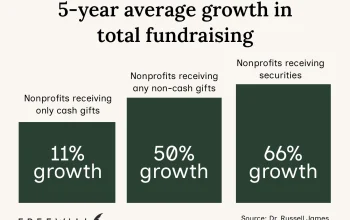Financial reporting frameworks are indispensable tools for global enterprises, ensuring regulatory compliance and accuracy while being complex to keep up with due to constantly shifting rules.
GAAP and IFRS are two essential accounting standards that offer structured insights into business transactions. In this article, we explore the differences between them as they pertain to fair value measurements disclosure.
GAAP
The Generally Accepted Accounting Principles provide a standardised framework for financial reporting, making it easy for investors and creditors to understand an entity’s performance over time. Adherence to GAAP rules also promotes trust with investors and lenders and may help businesses attract investment or secure loans at more favorable terms; however some GAAP rules can be controversial or may misrepresent a company’s true financial state; for instance requiring assets be valued according to historical cost rather than market value and disclosing potential bad debts are among them.
GAAP rules provide several concepts and principles that guide the presentation of financial data, including accrual basis, consistency, full disclosure, materiality and prudence. Although GAAP was developed in the US, its influence can be felt worldwide.
IFRS
International Financial Reporting Standards (IFRS) are a set of accounting rules which companies must abide by when creating financial statements for investors, auditors, and governments around the world to understand them. Furthermore, they require companies to produce a statement of cash flows which presents all their transactions over a specified time period.
IFRS is widely adopted by multinational corporations and considered a global reporting standard, yet is yet to become widely accepted in the US market. Regardless, widespread adoption of IFRS should result in increased cross-national comparability of financial information.
IFRS contains rules on how to record assets acquired through business deals such as mergers and acquisitions. Furthermore, it provides guidance on valuing assets using net realizable value as prescribed in IFRS 2, as well as rules related to joint ventures (joint ventures), structured entities that don’t consolidate (structured entities) as well as loans and receivables that a company doesn’t consolidate (structured entities). Finally, IFRS contains a framework for valuing loans and receivables (IFRS 12). Finally, IFRS includes rules regarding how loans and receivables should be valued under its guidance for using net realizable value.
IASB
The IASB is an independent organization that develops global accounting standards. Their standards aim to promote transparency and enable companies to make smarter financial decisions using accurate financial information. Their efforts have contributed towards global consistency in financial reporting that has benefitted both investors and stakeholders.
Standards set by this organization cover accounting for illiquid investments, measuring fair value of debt and equity, lease accounting rules, joint arrangements, as well as new rules to account for leases and joint arrangements. Furthermore, an initiative has been underway to establish standards for digital assets which have gained in popularity and offer new challenges to accountants.
Additionally, the IASB employs an open and inclusive process that ensures its standards are relevant and practical for stakeholders of all kinds. To better understand how they work and whether this organization meets your needs. Utilizing their Due Process Handbook may also prove useful in doing this.
SASB
The SASB is an independent non-profit organization that sets standards for sustainability reporting. Their standards focus on how a company creates and sustains enterprise value through addressing ESG issues that could have an effect on their finances, with their broad stakeholder approach encouraging transparency and engagement with all of their stakeholders.
Datamaran facilitates industry-specific standards that address disclosure topics, accounting metrics and activities metrics as well as any particular aspects of a company’s impact on sustainability and the community. Each standard also addresses a certain aspect of how companies contribute to sustainability and the community. We make use of Datamaran’s SASB framework by processing and annotating EESG topics covered by annual financial reports and sustainability reports – this allows companies to monitor how EESG impacts are reported over time in different formats and monitor how they develop over time.
The SASB’s groundbreaking materiality-focused approach helps businesses prioritize ESG issues that could have an effect on their financial standing, providing investors with information to make informed decisions and increase transparency. They recently joined forces to form Value Reporting Foundation.





